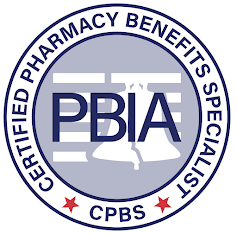The Consolidated Appropriations Act and PBM Transparency and other notes from around the interweb:
- The Consolidated Appropriations Act and PBM Transparency. Pharmacy Benefit Managers (PBMs) have been extending vertical integration in new and unique ways, leading to significant issues for plan sponsors and plans (referred to as “Plans” collectively). In a new and innovative approach, several large PBMs have created an additional layer between themselves and manufacturers to effectively delegate the collection of manufacturer rebates to “rebate aggregators.” Sometimes referred to as rebate GPOs, these mysterious entities include Ascent Health Services, a Switzerland-based GPO that Express Scripts launched in 2019; Zinc, a contracting entity launched by CVS Health in 2020, and Emisar Pharma Services, an Ireland-based entity recently rolled out by OptumRx. Even some of the major PBMs (i.e., the “Big Three” PBMs) sometimes contract with other PBMs’ rebate aggregators for the collection of manufacturer rebates as seen in the case of OptumRx contracting with Express Scripts for rebate aggregation for public employee plans. Worse yet, several of these entities have claimed exemption from the federal GPO Safe Harbor, resulting in a lack of transparency, and few limitations of their profitability.
- How Payers Can Cut Through the Noise and Optimize Their PBM Partnerships. Some payers and PBMs are owned by the same parent companies, and in fact, they make up a large share of the market — something that has attracted scrutiny. The complicated relationships between these large, combined entities make it important to build a working partnership that aligns with the goals of cost-effective, high quality and accessible care. As payers work to optimize their PBM partnerships, the complexity of their agreements makes it important to increase understanding and apply best practices to ensure transparency and value. The thought of switching PBMs can be overwhelming and often immobilizes payers instead of evaluating opportunities that would drive a more sustainable sound partnership. Payers need PBMs as partners to provide core critical functions. To optimize their relationship, payers can take several key steps.
- Report: “Specialty” drugs are by far the most expensive, but classification seems arbitrary. The prescriptions with the most astonishing price tags — like cancer meds that can cost more than $20,000 a month — are usually classified as “specialty” drugs. You’d think that since they’re so costly, there would be clear criteria for putting drugs in the specialty category. But, according to a new report, you’d be wrong. The issue might seem arcane, but it’s hugely important. Specialty drugs account for only about 2% of the volume of drugs dispensed in the United States, according toq industry estimates, but they also account for more than 50% of overall drug spending. The report, by data analysis firm 46Brooklyn Research, found that the three largest drug middlemen in the United States often don’t classify the same medicines as specialty. It also said that a substantial portion of the ones they do put into that category are generics — drugs that are usually no longer under patent and thus are supposed to be cheaper because multiple drugmakers can supply them.
- The Price of the PBM. One crucial element of the US drug supply chain is the wholesaler, who purchases drugs from manufacturers using purchasing power to gain discounts that average around 16 percent, according to IQVIA data. About 92 percent of prescription drugs are distributed through the three largest pharmaceutical wholesalers, McKesson, AmerisourceBergen, and Cardinal. Wholesalers earn revenue through “forward-buying,” purchasing extra inventory at current prices to sell them in future at a revised higher price.
